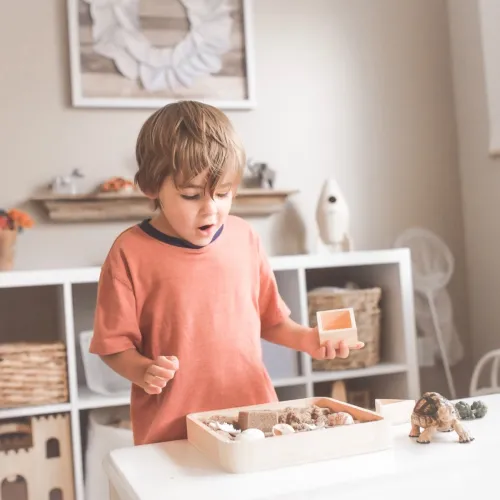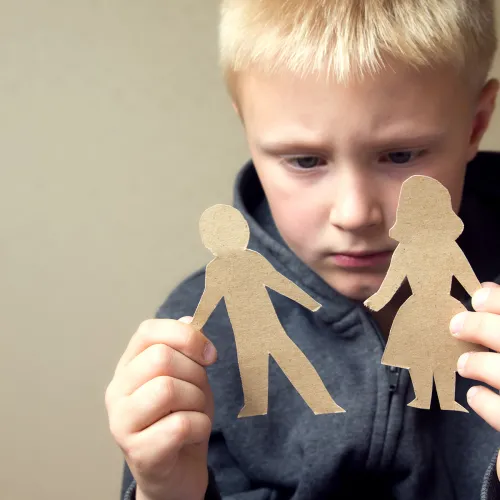Five Strategies to Improve Parent-Child Communication


Healthy communication rests at the heart of a healthy relationship. This applies in particular to relationships between parents and children. A child wants to have a warm and loving connection with each of their parents, and being able to communicate well with each other can help make that happen. However, a painful family event such as a separation or divorce can sometimes make it hard for a child to want to open up to either of their parents. To help you continue building that strong relationship with each of your children, here are five strategies to improve parent-child communication.
Get To Know How Your Child Communicates
Some children love to chat about anything, while other children tend to be more reserved. Whether your child is open or quiet, what's important is that they feel as though they can come to you as their parent for anything. Getting to know the way in which your child communicates can help you to understand how best to connect with them. Even if talking really isn't your child's favourite thing, just spending some quiet time with them can help to encourage them to open up when they need to.
Avoid Lectures
As a parent, you'll probably come across moments where you need to make sure your child listens and understands what you're telling them. Lecturing and nagging won't help you break through to your child any faster. If you feel like you've hit a wall in a conversation, set it aside for a little bit. Think about what it is that you really want your child to understand and how your child will best hear what you have to say next time you speak.
Listen Up
Being an active listener when speaking to your child is an important skill to practice. Give them your full attention during your conversations, showing them that you're interested in what they have to say. This includes making eye contact and leaving distracting things, like your cell phone, aside from your talks. When it is your turn to speak, respond thoughtfully. Later on, you might bring up part of your conversation to show your child that you remember what they said. It's also crucial that you listen for anything your child says that could be concerning to you as their parent. Maybe they are direct when speaking about their emotions, but even if they aren't, the things they do say can give you some insight into what they are truly feeling.
Tell Positive Stories
Children love to hear stories about all sorts of things, but it can be very special for a child to hear stories about their parents. As their parent, you should feel free to share stories with your child, but only share stories that serve a positive purpose. Don't share stories with your child in such a way that might be perceived negatively. This might include unflattering or inappropriate stories about your co-parent or other adults in your child's life. Consider your child's age and maturity level before sharing any story with them, as to ensure that they will correctly understand the point of it.
Find Time to Talk Everyday
You may have a tight schedule most of the time, but so might your children. With school, homework, extracurriculars, friends and after school jobs on their plates, your children may also find it hard to make time for anything outside of their schedule. However, there should always be a little time each day to set aside for each other. As a parent, take advantage of the seemingly trivial moments you have with your child just to talk. This might be in the car when driving to music lessons, grabbing a quick breakfast before work and school, at the dinner table, or even just before bed. Just a few minutes can make a big difference to improve parent-child communication.
Taking the time to consider the ways you communicate with your children now can help you improve your overall relationship. While your communication habits with your child will evolve as they grow up, practising these communication skills will support the foundation of your healthy relationship into the future.



